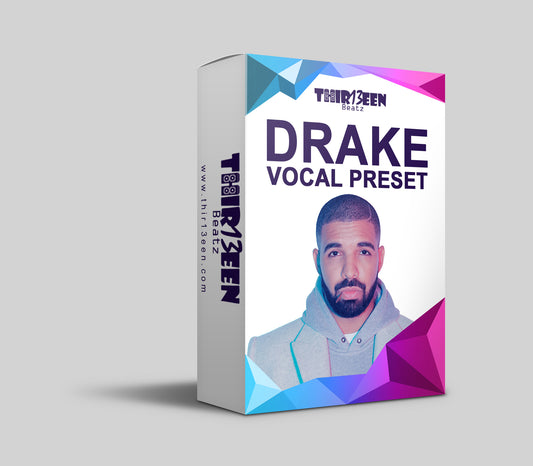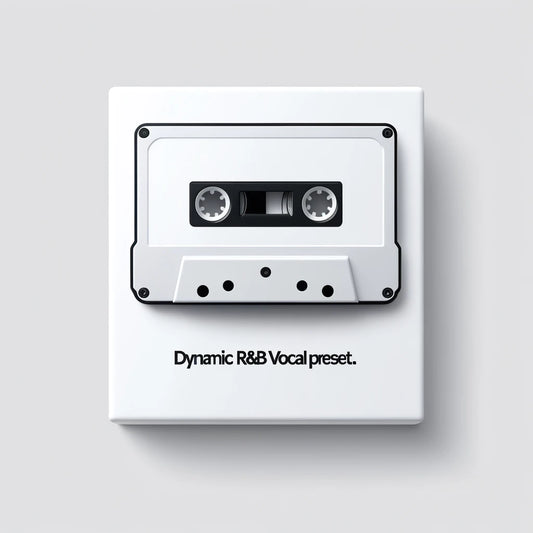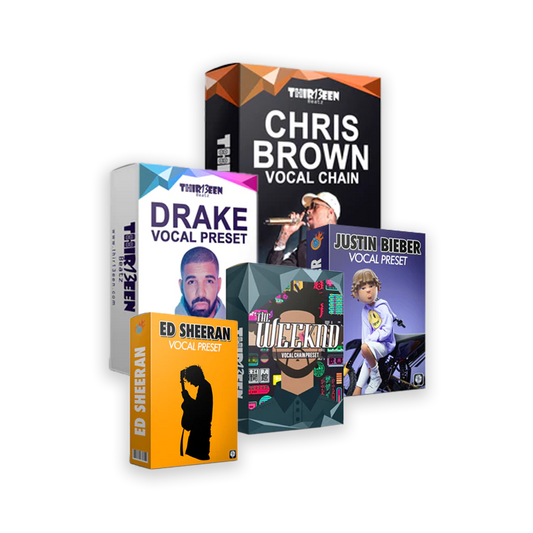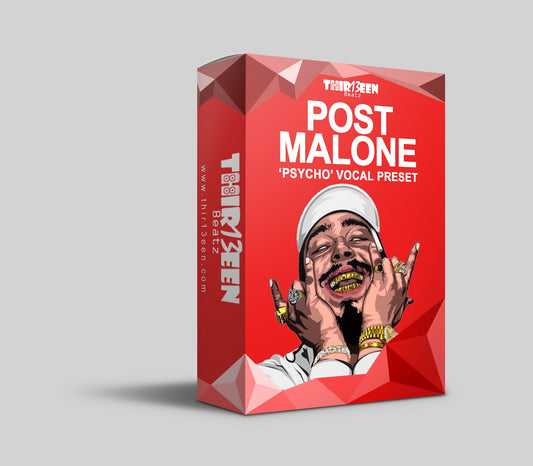How to Get on the Radio
As a recording artist, getting your music played on the radio is a critical step in building your career and reaching a wider audience.
With so many talented artists vying for airtime, it can be challenging to stand out and get the attention of radio stations.
However, with the right strategies and a little bit of persistence, you can increase your chances of getting your music played on the air.
In this post, we’ll provide practical advice and tips for getting radio airplay, from understanding the importance of radio airplay to promoting your music and everything in between.
Whether you’re a seasoned veteran or just starting out, these tips will help you make the most of your efforts and get your music heard by a larger audience.
1. Understanding Radio Airplay
Before you begin your journey to get radio airplay, it's important to understand what it is and why it's important. Radio airplay refers to the amount of time your music is played on the radio. It's a key factor in determining the success of a song, as well as the artist's popularity.
Radio airplay in 2023 continues to offer unique benefits compared to platforms like YouTube and Spotify. While both YouTube and Spotify provide opportunities for artists to reach a large audience, radio airplay has the added advantage of reaching listeners in real-time, as they tune in to their favorite radio stations. This can lead to a sudden and significant increase in exposure and popularity for an artist. Additionally, radio airplay often has a ripple effect, as listeners who hear a song on the radio are more likely to seek it out on other platforms like YouTube and Spotify.
Furthermore, radio airplay can also lead to live performance opportunities and increase the artist's credibility in the music industry. While YouTube and Spotify are important components of an artist's promotional strategy, radio airplay remains a key factor in determining a song's success and the artist's popularity.
2. Research Radio Stations
Do your research and find out which radio stations are most likely to play your genre of music. Check out their websites and social media pages to get a sense of their playlist and target audience. Make a list of stations that seem like a good fit for your music.
3. Build Relationships
Building relationships with radio stations is critical for getting your music played on the air. Start by reaching out to radio DJs, music directors, and other key personnel at the stations you’ve researched. Introduce yourself and your music, and let them know why you think your music would be a good fit for their station. You can also attend local events, network with other musicians, and participate in online forums related to the music industry to build your relationships.
Here are some bullet point tips on how you can network and build relationships with DJs, label executives, and music supervisors:
-
Attend industry events: Attend music industry events such as conferences, concerts, and festivals to meet with potential collaborators and industry professionals.
-
Connect through social media: Utilize social media platforms to connect with DJs, label executives, and music supervisors. Follow them, engage with their posts, and share your own content to get on their radar.
-
Network with other musicians: Building relationships with other musicians can help you expand your network and potentially introduce you to industry professionals. Attend local shows and engage with other musicians online.
-
Participate in online forums: Participate in online forums related to the music industry and engage in discussions to build your online presence and connect with like-minded individuals.
-
Reach out directly: Reach out directly to DJs, label executives, and music supervisors to introduce yourself and your music. Offer to provide a press kit or music samples to help them get to know your sound.
-
Collaborate with others: Consider collaborating with other artists and musicians to create new and exciting music. This can help you expand your network and potentially introduce you to new industry professionals.
-
Offer to perform: Offer to perform at industry events, concerts, or local venues to showcase your talents and build your network.
By using these tips, you can build their network and connect with industry professionals who can help them get their music heard and further their careers.
Learn More: Music Industry Connections Contact Directory List
4. Make Quality Music
The most important factor in getting radio airplay is having quality music. Make sure your recordings are of professional quality and that they showcase your unique sound and style. Work with experienced producers and engineers to make the best recordings possible.
Here's how you can make quality music that will help you stand out in the competitive music industry:
-
Study your craft: Take time to study the music you admire and learn from the best. Read books, attend workshops, and experiment with different sounds to continually improve your skills.
-
Experiment with different genres: Don't be afraid to experiment with different genres and styles of music. This can help you develop a unique sound and style.
-
Invest in equipment: Invest in high-quality equipment and software to produce the best possible sound. This can make a significant difference in the quality of your music.
-
Collaborate with others: Collaborate with other musicians, producers, and engineers to bring new ideas and perspectives to your music.
-
Write consistently: Write and record new music consistently to build your catalog and stay inspired.
-
Get feedback: Seek feedback from industry professionals, musicians, and fans to get an honest assessment of your music and identify areas for improvement.
-
Keep evolving: Don't be afraid to take risks and evolve your sound. This can help you stay relevant and stand out in the industry.
By focusing on making quality music, you'll increase your chances of success and build a loyal fanbase.
5. Submit Your Music
Once you have a solid set of recordings, you can start submitting your music to radio stations. Make sure you send your music to the right people at the station and include a press kit with information about your music and background. You can also use online platforms such as DistroKid, Tunecore or CD Baby to distribute your music to radio stations and streaming services. I use Distrokid - Its stupidly easy to use and has everything i need to get my music online in minutes.
6. Follow Up
After you’ve submitted your music, follow up with the radio stations to see if they’ve had a chance to listen to your music. If they have, ask for feedback and if they’d like to schedule an interview or live performance. If they haven’t listened yet, gently remind them about your submission and offer to answer any questions they may have.
7. Promote Your Music
In addition to submitting your music to radio stations, you can also promote your music through social media, live performances, and other marketing strategies. Encourage your fans to request your music on the radio and share your music with their friends and family.
8. Be Patient
Getting radio airplay takes time and persistence. Don’t get discouraged if you don’t get airplay right away. Keep submitting your music and promoting it, and eventually, you may start to see some success. In 2010 I was working in a retail store earning $400 per month with a one year old son and wife at home. This was a low point in my life. Despite this low, I carried on blogging, making music, youtubing and promoting my music brand whilst sharpening my marketing knowledge. Then one of my YouTube videos went viral and start driving thousands of visitors to my music blog thir13een.com every day. Now I work full time on my passion and live a lifestyle that I love. This wouldn't be possible if I quit back in that retail job I had or when things weren't working out and i was late on my bills. Stick through the process because all your hopes and dreams are waiting round the corner.
Conclusion
In conclusion, getting radio airplay is a crucial step in a recording artist’s career. By understanding what radio airplay is, researching radio stations, building relationships, making quality music, submitting your music, following up, promoting your music, and being patient, you can increase your chances of getting your music played on the air.










1 comment
I fell in love with all your encouraging words of advice! thank you so much for this uplifting info, much needing as My wife and I are a new struggling Gospel group in south Ga! God’s Grace,.. We mastered create and produce, and write and sing only our creative works given us truly through our Devine Holy Spirit, God our Father in Heaven! We know we are in a long journey, but just as we have submitted freely and lovingly to our Father’s wishes we still struggle getting heard on Radio play! As the Producer I know i have much to learn and improve, however i am forever more devoted to delivering my promise to Jesus of doing my best for him as a Minister and singer/songwriter of his messages entrusted to us to share to the world! If just one of his messages land on solid ground, of anyone needing to hear it . Then all is worth this struggle! We Pray that someone anyone just allows the Holy Spirit a place and a home in their lives! God Bless you! Sincerely God’s Grace Gospel, Thomas C Walker and Amy Lou Walker! We currently have 15 singles out everywhere i can get them! On all music platforms distributed through and by DistroKid! Please give an ear and let us know if liked or not!